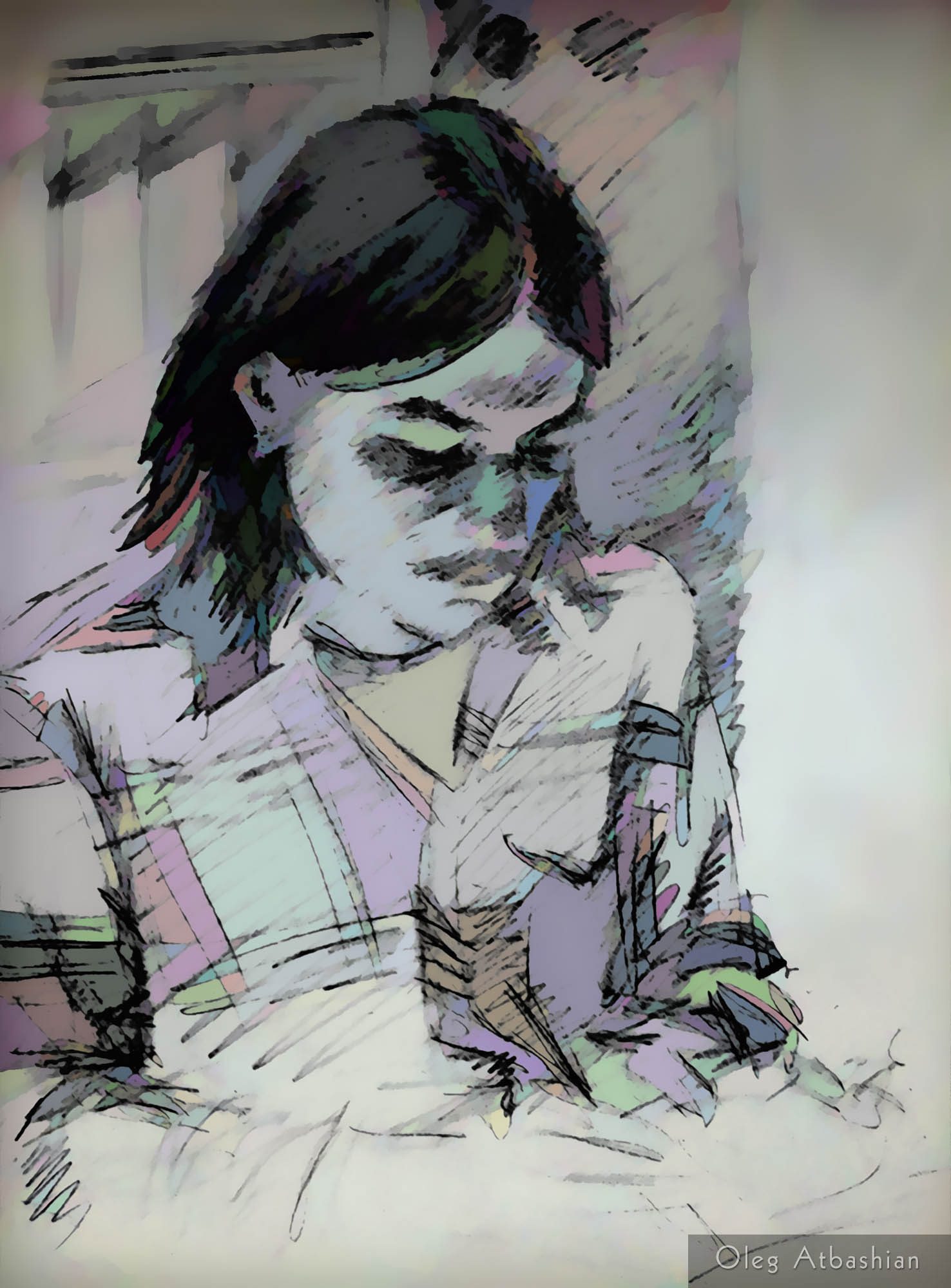As my friend and I were traveling in Uzbekistan in 1983, we met Sasha – a self-identified hippy from Moscow. He was sitting with his backpack in front of one of Samarkand’s historic buildings, drawing a sketch. Like us, he was about 23. We started talking and became friends. He said he slept outside the city in the desert, on his camel blanket. We invited him to sleep in our hotel, which was a collection of low-end barracks housing groups of Soviet tourists. He agreed and for a few nights slept on the floor, using the same camel blanket and eating for free at the local cafeteria, posing as part of our group.
He told us the latest news of the vibrant Moscow underground and recited dissident poetry, which he remembered in abundance. In the absence of independent media, this was the only way of learning those kinds of news and we were grateful for the enlightenment. He also praised the high quality of the local wild-growing hemp, of which we knew nothing about. He told us that hashish was widely available at the local farmers’ market, with everybody smoking it here, from farmers to policemen. He asked us for a few roubles so that he could procure some and disappeared.
In the evening he returned with a matchbox filled with some brown resin. We sat on the side of the road, where he emptied a cigarette into his hand, mixed the loose tobacco with the resin, and carefully stuffed the mix back into the cigarette. Just as he lit up the match and made the first draw, a police car came out of nowhere and the three of us were arrested and searched. Sasha told us to blame anything on him and that he couldn’t be prosecuted because he held a certificate that he was insane.
At the local police station, a lieutenant with an Uzbeki accent sincerely wanted to know how exactly we arrived at an idea to smoke hemp. My friend and I honestly told him that we had seen people smoking hemp in a recent Soviet-made documentary that exposed the evils of decadent capitalist societies, including sex, drugs, and rock ‘n’ roll. We said that some of those scenes made us curious.
Sasha wasn’t answering any questions. Instead, he screamed that he was a hippy and that police brutality was cramping his lifestyle. A sergeant took him into a cell with his arm twisted behind his back and we never saw him again.
A few years passed by. I happened to be in Moscow on a business trip and dialed the phone number Sasha had given me. His mother picked up the phone and very cautiously asked who I was. When I said that we’d met in Uzbekistan she became scared. “Sasha isn’t home,” she said in a teary voice and hung up.
Some years later when I visited California and saw the proliferation of marijuana products, I remembered Sasha’s stories and thought that California was not unlike Uzbekistan. I was still curious to try it and before too long the opportunity arose. It made me dizzy, I didn’t like it, and didn’t smoke it again.
